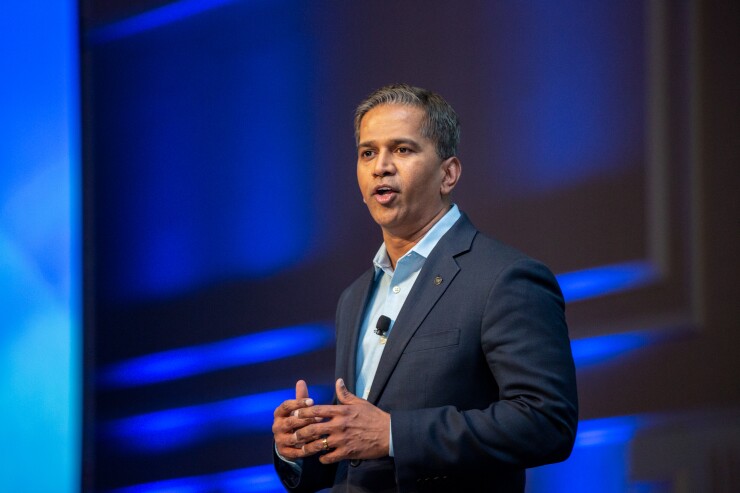Berkshire Hills Bancorp in Boston is investing billions of dollars in underserved communities, punctuating its commitment to solve environmental, social and governance problems — and, in the words of its chief executive, setting the bar high for community banks across the country.
"This has to be in your DNA because you cannot fake it," Berkshire Hills President and CEO Nitin Mhatre said in an interview.
Banks not only need to put money
In the case of the $11.3 billion-asset Berkshire Hills, this takes multiple forms, notably including a program launched in 2021 to lend and invest a total of $5 billion over three years in minority neighborhoods and other communities historically overlooked across a footprint that spans New England and New York.

The initiative involves new small-business loans and home loans to customers who previously had been unable to secure bank credit. This includes first-time homebuyers, people with low and moderate incomes, and small businesses in predominantly minority neighborhoods.
"We have been doing these things all along, but now we have put it into a better structure" that measures the commitment to addressing social challenges, Mhatre said.
The bank also made substantial shifts in the way it manages its staff and operations to better ensure an inclusive work environment and modern governance practices. Recent steps included making all restrooms gender neutral and boosting its socially responsible investments under management by $50 million.
On the environmental front, Berkshire Hills ended lending to businesses such as
To be sure, megabanks such as JPMorgan Chase and Bank of America have established ESG targets for both lending and investing, and they are quantifying their annual progress for investors. Some small banks are making important strides as well.
Amalgamated Financial Corp. in New York, for example, last year
Another example: Climate First Bancorp, a $250 million-asset institution in Winter Park, Florida, last month acquired Ecountabl Inc.'s climate and social justice financial technology platform. It indexes data on more than 10,000 companies and analyzes their ESG performance to help customers track how their purchases stack up against their own principles.
"Banks should make it easy for people to spend their money in ways that align with their social and environmental values," Ken LaRoe, Chairman and CEO of Climate First, said in a release announcing the deal.
More community lenders are beginning to look at ways to demonstrate their ESG integrity as major institutional investors such as BlackRock increasingly demand it. Big investors set unofficial but meaningful standards for large companies that ultimately trickle down to smaller ones, said Mike Matousek, head trader at U.S. Global Investors
But most small banks are only in the early stages, he added, making the example set by the likes of Berkshire Hills important.
Mhatre said Berkshire Hills is making ESG core to its strategy because it is both the right thing to do and the right thing for the bottom line. For example, socially responsible practices help the bank attract talent and clients who care about and support diversity and inclusion, he said.
"We've seen a lot of interest" from both customers and potential employees because of the bank's ESG commitments, Mhatre said. "That only continues to grow."






